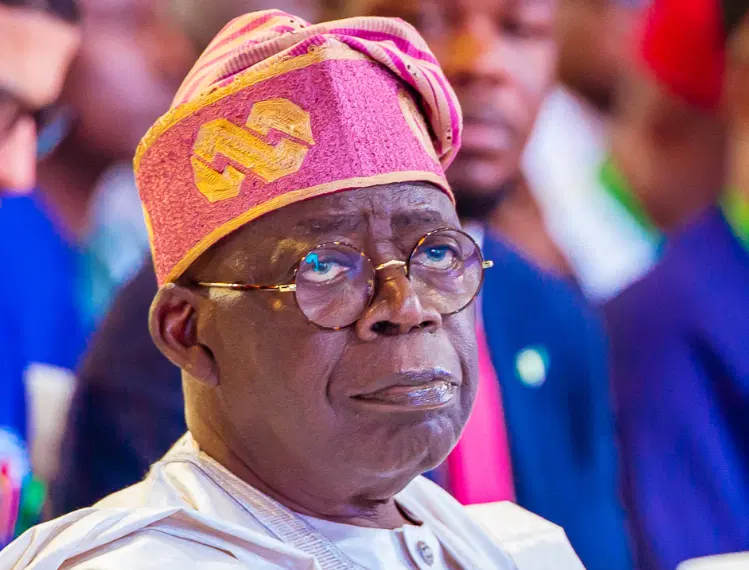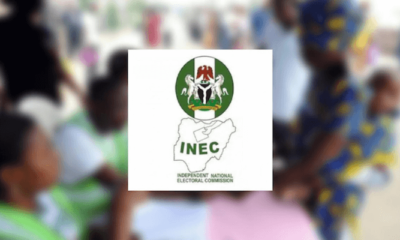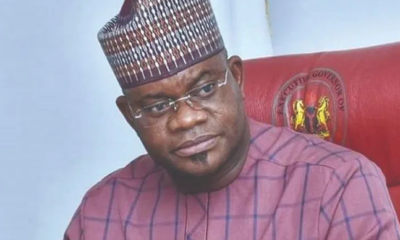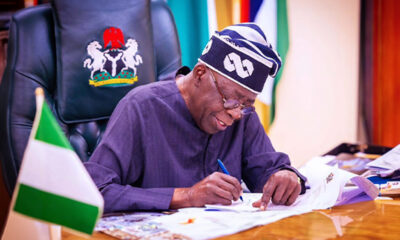Business
BREAKING: Tinubu Govt Pushes Nigeria’s Debt to Record ₦152.4 Trillion in 90 Days, DMO Confirms Fresh Borrowing Surge
Nigeria’s total public debt has surged to a record ₦152.4 trillion as of June 2025, according to the Debt Management Office (DMO).

- Nigeria’s total public debt has surged to a record ₦152.4 trillion as of June 2025, according to the Debt Management Office (DMO).
- The figure represents a ₦3.01 trillion increase within just three months, highlighting the Tinubu administration’s growing reliance on borrowing to finance budget deficits.
Nigeria’s total public debt stock has climbed to ₦152.40 trillion as of June 30, 2025, according to the latest data released by the Debt Management Office (DMO) on Saturday.
The new figure marks an increase of ₦3.01 trillion from the ₦149.39 trillion recorded at the end of March 2025, representing a 2.01% rise within three months. In dollar terms, the debt portfolio grew from $97.24 billion to $99.66 billion, a 2.49% increase.
Nigeria’s Debt Profile Breakdown
According to the DMO, the rise reflects the government’s continued reliance on domestic and external borrowing to bridge fiscal deficits amid ongoing economic reforms under President Bola Tinubu’s administration.

External Debt:
Nigeria’s external debt climbed to $46.98 billion (₦71.85 trillion) in June, up from $45.98 billion (₦70.63 trillion) in March. The World Bank remained the country’s single largest external creditor with $18.04 billion outstanding — mostly through the International Development Association (IDA) — accounting for about 38% of total external obligations.
Multilateral lenders accounted for $23.19 billion (49.4%), including exposures to the African Development Bank (AfDB), the International Monetary Fund (IMF), and the Islamic Development Bank. Bilateral loans contributed $6.20 billion, led by the Export-Import Bank of China with $4.91 billion, alongside smaller exposures to France, Japan, India, and Germany. Commercial borrowings, mainly Eurobonds, stood at $17.32 billion, representing 36.9% of total external debt, while syndicated loans and commercial bank facilities totalled $268.9 million.
Domestic Debt Composition
On the domestic front, Nigeria’s debt rose to ₦80.55 trillion in June, up from ₦78.76 trillion in March — an increase of ₦1.79 trillion (2.27%).
DON’T MISS: FirstBank Launches Voice-Enabled ATMs, Tactile Cards, Others for Blind and Physically Challenged Customers
Federal Government bonds dominated the domestic portfolio with ₦60.65 trillion (79.2%), including:
- ₦36.52 trillion in naira-denominated bonds, ₦22.72 trillion in securitised Ways and Means advances from the Central Bank of Nigeria (CBN), and ₦1.40 trillion in dollar bonds.
Other instruments included ₦12.76 trillion in Treasury Bills, ₦1.29 trillion in Sukuk bonds, ₦91.53 billion in savings bonds, ₦62.36 billion in green bonds, and ₦1.73 trillion in promissory notes.

The securitisation of the CBN’s Ways and Means facility — converting overdrafts to long-term debt — underscores the fiscal pressures facing the Tinubu administration as it seeks to enforce monetary discipline and rebuild investor confidence.
Federal and State Debt Distribution
The DMO revealed that the Federal Government accounted for ₦141.08 trillion (92.6%) of the total public debt, including ₦64.49 trillion in external obligations and ₦76.59 trillion in domestic liabilities.
Meanwhile, the 36 states and the Federal Capital Territory (FCT) owed a combined ₦11.32 trillion (7.4%), comprising $4.81 billion (₦7.36 trillion) in external debt and ₦3.96 trillion in domestic liabilities.

Nigeria’s Fiscal Outlook
Nigeria’s escalating debt levels come amid the government’s ongoing efforts to boost non-oil revenue, stabilise the naira, and curb inflation under its economic reform agenda.
Although the DMO maintains that the debt remains within sustainable limits, analysts warn that the cost of borrowing, exchange rate volatility, and Eurobond exposure could heighten the country’s vulnerability to global financial shocks.























You must be logged in to post a comment Login